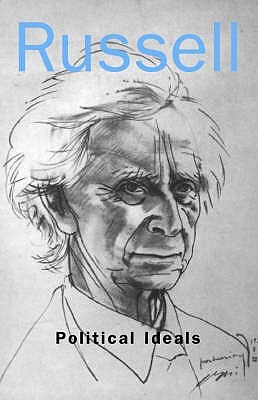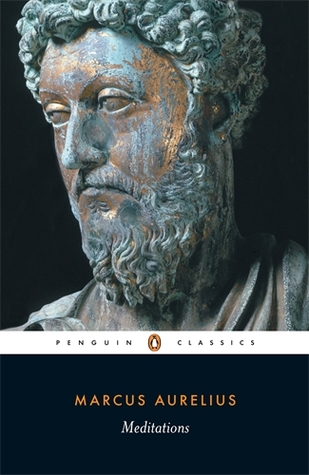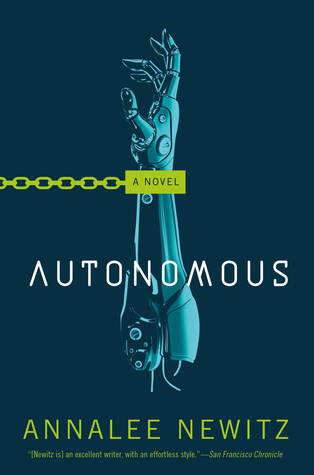Tyson Adams's Blog, page 34
August 23, 2018
Elves with swords
[image error]
Is this the real life? Is this just fantasy? Caught in a landslide, no escape from reality. Open your eyes, look up to the skies and see… Some really awesome stories.
This month’s It’s Lit with Lindsay Ellis covers the much-maligned genre of fantasy.
Fantasy is a lens to explore what we as a society find important to our pasts, our presents, and future. Fantasy and science fiction often fall under the umbrella of “speculative fiction” – as a result they are often grouped together, especially in bookstores. But science fiction is a forward-looking genre propelled by the possibilities of technology (and the things that worry us about it), fantasy is … more backward looking.
Vote on your favorite book here: https://to.pbs.org/2Jes2X5
August 21, 2018
Book review: Autonomous by Annalee Newitz
My rating: 3 of 5 stars
Future slavery gets around slavery laws by cleverly using a different word.
Jack reverse engineers pharmaceuticals so that poor people can afford life-saving drugs. She reverse engineered a new wonder work drug but finds out too late that a BigPharma company made it 100% addictive, and now people are dying. In this (dystopian) future, intellectual property and patents are protected by private armies with killer robots. One agent and his bot, Eliasz and Paladin, are hunting Jack down for her crimes as she is desperately trying to engineer a treatment for the addictive drug.
This book was difficult to review. As a novel, the writing, plotting, characters, and themes are all interesting and well done. On that basis, it is a solid 4-star book. But there was quite a bit about the premise and key plot devices/points that had me making squinty faces as my scepticism was triggered. And the more I think about those points and the premise, the more flaws I see with them.
For example, slavery is a theme discussed for humans and bots – giving rise to the title of the book. In the future companies and governments were so clever they were able to reintroduce* slavery by calling it “indentured”. This felt lazy and unrealistic. Especially since there was another part of this idea explored with franchising – parents paying to set their kids up with an education and ability to get a job – that extrapolates on the current situation for haves vs have-nots and draws upon the criticisms of capitalism. To my mind, the two ideas don’t sit together that well and meant the latter idea was wasted.
Others had some interesting things to say about the bot-human relationship. Suffice to say, it could have been done a bit better.
I suppose I was disappointed with this book. For a novel that was so well written and had clearly had a lot of thought put into it, Autonomous just couldn’t manage to drag itself away from lazy anti-corporate conspiracy ideas to the more interesting material it had on offer.
*It could be argued that slavery never stopped.
August 19, 2018
Book review: Political Ideals by Bertrand Russell
 Political Ideals by Bertrand Russell
Political Ideals by Bertrand Russell
My rating: 5 of 5 stars
Reading old books reminds you that nothing has changed.
Political Ideals is an essay Bertrand Russell wrote during World War 1 – stay tuned for WW3 – that offers critiques of capitalism, socialism, nationalism, politics, education, and offers insights into how we should go about building a better society. He does this in less than 100 pages.
Russell’s essay is filled with interesting and insightful ideas. Even if you disagree with any of them, there is value in engaging with what he is saying. E.g.:
“Few men seem to realize how many of the evils from which we suffer are wholly unnecessary, and that they could be abolished by a united effort within a few years. If a majority in every civilized country so desired, we could, within twenty years, abolish all abject poverty, quite half the illness in the world, the whole economic slavery which binds down nine-tenths of our population; we could fill the world with beauty and joy, and secure the reign of universal peace. It is only because men are apathetic that this is not achieved, only because imagination is sluggish, and what always has been is regarded as what always must be. With good-will, generosity, intelligence, these things could be brought about.” Source.
This quote has been paraphrased, rephrased, and appropriated by many in the last century (although, I’m sure these thoughts weren’t original when he wrote them). It shows Russell’s reputation as a founder of modern analytic philosophy and as having made significant contributions to many subjects is well deserved. Few could so concisely state such a complex social idea.
Worth a read, even if you disagree with Russell on some or all points.
August 16, 2018
Book vs Movie: Ready Player One – What’s the Difference?
[image error]
This month’s What’s the Difference? from CineFix covers Ready Player One.
Normally I’d add a few comments here about what I thought about the book and/or the movie, particularly the adaptation. But Ready Player One falls into an odd realm for me. I’d initially had the book on my TBR pile but ended up removing it after a discussion at a writers’ group. The gist was that the book is a great example of the “you’re not a real geek” toxicity that pervades geek culture, exemplified by rating pop culture references.
Then when the movie trailers came out, it too looked like one long list of pop culture references that only true geeks would appreciate… By appreciate, I mean argue and post overanalysed articles and Youtube videos online for weeks after most people have moved on.
Hey look, here’s a video of all the pop culture references:
This is a roundabout way of saying I haven’t read the book nor watched the movie, nor do I feel particularly inspired to do either. Enjoy the video anyway.
August 14, 2018
Book review: Astrophyics for people in a hurry by Neil deGrasse Tyson
 Astrophysics for People in a Hurry by Neil deGrasse Tyson
Astrophysics for People in a Hurry by Neil deGrasse Tyson
My rating: 4 of 5 stars
Oppose the gravitational force with your phalanges if you value science.
Science communicator Neil deGrasse Tyson understands that most people don’t have time to read physics books – plus they are hard work to read. So he decided to package together some of his essays into a book that covers the major aspects of astrophysics in a way anyone could enjoy and learn from.
While reading this book I had a revelation. Could there be an explanation other than Dark Matter and Dark Energy for the gravity and expansion of the universe?
I’m going to propose Pratchett’s Theorem as an alternate hypothesis for the expansion of the universe and gravity. Since the universe is flat and there are unexplained gravity and expansion, I postulate that this flat universe is riding on the backs of four large elephants. This explains the gravity pulling everything down. These elephants are riding on the back of a large turtle who swims through the multiverse. The elephants are slowly moving away from one another – which explains the expansion – and walking down the curved shell of the turtle such that each step is larger than the last – which explains the increased speed of expansion.
This, of course, raises the questions of whether it was the elephants who were the prime movers behind the “Big Bang”, whether the elephants will keep walking down the shell until they fall off tearing the universe to shreds, or whether the elephants will eventually decide to walk back toward one another for a reunion? Do they also walk directly away from one another, or do they walk around the shell, such that the universe rotates? Given everything within the universe rotates, it would only make sense that this rotation is caused by the elephant’s motion.
Anyway, NDGT’s book was a good read. It doesn’t dumb things down, nor use too many lay terms, which was refreshing. But as a scientist, albeit in a completely different field, it felt like the book was aimed at a more general audience, particularly those who aren’t familiar with many of the topics discussed. Which made it only a good but not a great read for me.
August 12, 2018
Book review: Equal Rites by Terry Pratchett
 Equal Rites by Terry Pratchett
Equal Rites by Terry Pratchett
My rating: 5 of 5 stars
Witches ride on brooms and wizards hold a staff in their hands. Nothing phallic about that.
Eskarina “Esk” Smith was born the eighth son of the eighth son and was bequeathed Drum Billet’s wizarding abilities and staff. Minor mixup. Esk is a girl. But too late for any take-backs, Esk’s magical talents have her training with Granny Weatherwax in witching. This isn’t enough for Esk as she is meant to be a wizard, she has the staff and everything, so she journeys to the Unseen University for training.
I’ve come at the Witches instalments of Discworld backward. The first one I read was The Shepherd’s Crown, Pratchett’s last novel before his death, in which Granny Weatherwax dies.* So to come to the first was overdue. I was somewhat disappointed with The Shepherd’s Crown – probably because it was unfinished in terms of Pratchett’s usual revision process – but not so with Equal Rites. This was highly enjoyable and tackled some interesting tropes of fantasy, as well as plotting the rise of grrl power on the Disc.
*That isn’t a spoiler, it’s pretty much the first chapter.**
**Not that Sir Terry was a big fan of using chapters, but you take my meaning.
August 9, 2018
Book Review: Capital, Vol 1 by Karl Marx
 Capital, Vol 1: A Critical Analysis of Capitalist Production by Karl Marx
Capital, Vol 1: A Critical Analysis of Capitalist Production by Karl Marx
My rating: 5 of 5 stars
If you get to the point does that make you bourgeoisie?
Karl Marx’s classic text is a historical, economic, sociological, and philosophical work. Marx tries to show the ways in which workers are exploited by the capitalist mode of production and argues that the capitalist system is ultimately unstable because it cannot endlessly sustain profits. And this takes 1,100 pages to say.
Since it has become popular to call anyone left of a third-generation venture capitalist with their cash in the Caymans and their Nazi gold in a Swiss vault, I thought it was time to read some Marx. That way when people call someone a Post-Modern Marxist Communist I’ll have some idea of how little they know what any of those words mean.
I was actually surprised by this book since it was completely different from what I had expected. The sort of book I had been expecting was a philosophical or ethics text, instead, this is much more a history and economics book. The historical notes documented in Das Kapital are worth reading alone. They act as a reminder of what working/slavery conditions were deemed acceptable, and how similar the arguments from then are to the defences of sweatshops in poorer nations today.
But this book takes the long way round to make its points. If it had instead made its arguments and then offered up one example, then some appendixes, I’d have “enjoyed” this more. Too often it gets bogged down in labouring* the point rather than documenting history or encouraging you to join a union. Worth reading, but be prepared for a lot of waffle.
*Ahhhh, puns.
August 7, 2018
An ode to the romance novel
[image error]
Romance is one of the biggest selling and most popular genres, that apparently nobody reads…
The closest I come to reading romance is the Mercy Thompson series, so I’m not qualified to discuss it. Fortunately, PBS’s series It’s Lit has Lindsay Ellis to discuss it.
What actually makes a romance novel?
The romance novel has been the subject of intrigue, derision, and shame in literary discourse long before the modern genre as we know it today existed. Romance novels are relegated to your Aunt Muriel’s bathroom, thrift store book sections, and that one aisle in Barnes and Noble that you pretend to walk through because you got “lost” looking for cookbooks. But it deserves a closer look than that – it is after all the highest grossing of all literary genres, out-selling its next nearest competitor twice over.
Vote on your favorite book here: https://to.pbs.org/2Jes2X5 It’s Lit! is part of THE GREAT AMERICAN READ, a eight-part series that explores and celebrates the power of reading. This all leads to a nationwide vote of America’s favorite novel. Learn More Here: https://to.pbs.org/2IXQuZE
August 5, 2018
Vampire flash fiction
"Hello! Do you have a minute to talk about Dracula?"
"No- wait, Dracula?"
"Yes!"
"You're vampires?"
"Yes. We have pamphlets."
"Vampires have missionaries?"
"Where else would new vampires come from?"
"I assumed you bit people."
"There are many hurtful stereotypes. May we come in?"
— Micro Flash Fiction (@MicroFlashFic) July 26, 2018
August 2, 2018
Book Review: Meditations by Marcus Aurelius
 Meditations by Marcus Aurelius
Meditations by Marcus Aurelius
My rating: 5 of 5 stars
“To read carefully, and not to be satisfied with a superficial understanding of a book.”
[Insert superficial overview of Meditations here]
Meditations were something Marcus (we’re on a first name basis here) wrote for his own moral improvement, to remind himself of and cement the Stoic doctrines he wanted to live by. Things like the world is governed by Providence (which certainly lets him off the hook for all those people fed to the lions during his reign); that happiness lies in virtue and your will to follow it; and that you should not be angry at others. Journalling of this sort was something Epictetus advised, which has resulted in a collection of notes, reminders, aphorisms, and slogans for every occasion.
There is a lot to like about Meditations. It felt like a self-help book but written with a more philosophical bent and less of the “you too can achieve greatness (and give me lots of money) if you follow my twelve rules for life”. It isn’t without problems, such as those outlined in Russell’s History of Western Philosophy. I also found Marcus’ musings on the Deliberative Content Problem to swing between ideas and thus come off as confused.
This is my second major reading of Stoic philosophy. I’m coming to the conclusion that Stoicism does seem to have a lot to offer.




